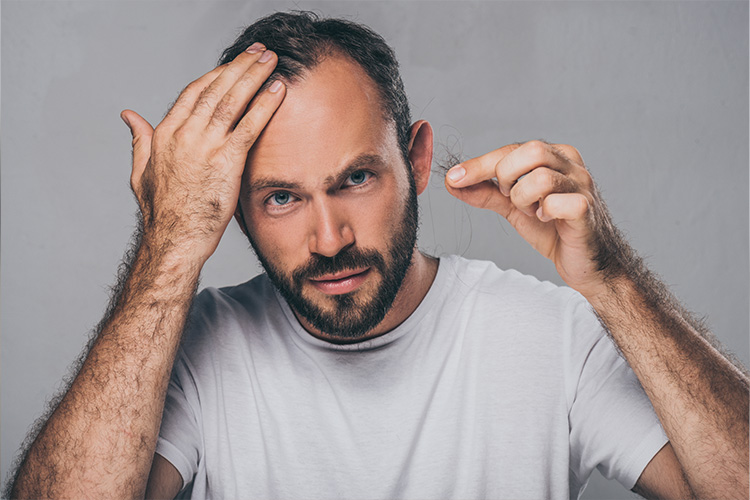- Kartaltepe Mahallesi İncirli Caddesi Limon Çiçeği Sokak No: 1 34145 Bakırköy İstanbul
- +90 541 548 52 47

4 Tips to Make Your Hair Transplant Recovery Easier
04/01/2024
Why Do We Need Revision Hair Transplants?
30/01/2024Hair loss is a common problem that many people face and can often cause worry and stress. However, there can be many different reasons for hair loss, and finding the appropriate treatment can be challenging if not properly identified. In this article, we will explore the common causes of hair loss and how you can address this issue.
- Genetic Factors:
Genetic predisposition is one of the most common causes of hair loss. Individuals with a family history of baldness or thinning hair are at risk of hair loss. Genetic hair loss is commonly known as androgenetic alopecia in men and can also be seen in women.
- Hormonal Changes:
Hormonal changes, especially imbalances or changes in hormonal activity, can lead to hair loss. Conditions such as pregnancy, menopause, or thyroid disorders can cause hormonal changes and trigger hair loss.
- Stress and Emotional Factors:
Intense stress, emotional trauma, or excessive anxiety can contribute to hair loss. Stress can affect hormonal imbalances in the body and lead to hair loss. Stress management and relaxation techniques are important for maintaining hair health.
- Unhealthy Diet:
Unhealthy eating habits can prevent the body from getting the nutrients necessary for hair growth. Vitamin and mineral deficiencies, especially iron, zinc, B vitamins, and protein deficiency, can contribute to hair loss. A balanced diet is essential for maintaining hair health.
Hair loss can be caused by many different factors and is often a complex issue. However, with the right diagnosis and appropriate treatment, it is possible to prevent or reduce hair loss. It is important for individuals experiencing hair loss to consult a dermatologist or hair specialist. Additionally, adopting a healthy lifestyle and practicing stress management techniques are important for maintaining hair health.
What Can You Do to Reduce Hair Loss?
To reduce or control hair loss, you can try some of the following methods:
Healthy Eating: By adopting a balanced diet, you can ensure that your body gets the nutrients needed for hair growth. Consuming foods rich in iron, zinc, B vitamins, and protein can support your hair health.
Hair Care: Choose the right shampoo, conditioner, and other hair care products to regularly cleanse and moisturize your hair. Additionally, massaging the scalp regularly can increase blood circulation and strengthen hair follicles.
Stress Management: Practice relaxation techniques to reduce daily stress. Methods such as yoga, meditation, deep breathing exercises, or hobby activities can help reduce stress levels and contribute to hair health.
Consult a Doctor: If the problem of hair loss persists or worsens, consult a dermatologist or hair specialist. Experts can identify the underlying causes of hair loss and recommend an appropriate treatment plan.
Supplements: Consider taking vitamin and mineral supplements to support hair health under the guidance of your doctor. However, always consult a healthcare professional before using any supplements.
Hair loss can be a complex and frustrating problem, but it can be controlled with the right care and treatment methods. By adopting a healthy lifestyle and following expert recommendations, it is possible to maintain hair health and reduce hair loss. Remember, everyone's experience with hair loss may be different, so a personalized approach is important.




